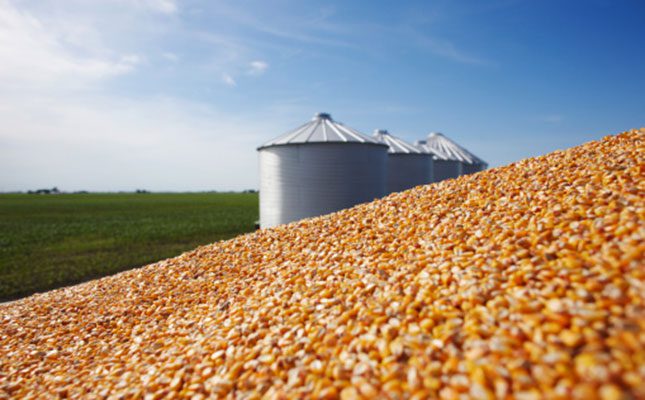
Photo: FW Archive
The primary focus of insurance is the protection of property, products and people. But insurance, especially in the grain storage sector, can be complicated.
The last topic discussed during the Agbiz Grain Grain and Oilseeds Value Chain Symposium, held in Pretoria, focused on insurability within the grain storage sector.
In his opening remarks, Wessel Lemmer, general manager at Agbiz Grain, noted that the insurance cost for silo operators escalated notably over the past decade. “The increase in insurance costs pertains to the cost at silos as well as for the grain during transport,” he said.
“What we wish to do during our panel discussion is to dissect all the elements that pertain to insurance in the grain storage sector, but we would also like to show what our industry is already doing to reduce risks and insurance costs.”
Agbiz Grain is an association of 12 storage operators that are active in the South African market. Members handle and store 70% of the grain and oilseeds produced in the country and are the owners of 98% of all sites registered on the Johannesburg Stock Exchange.
“We play a significant role in the functioning of the market in creating an environment in which the storage sector can thrive, expand and be competitive,” Lemmer explained.
The discussion was moderated by Kobus Truter, head: Structured Commodity Finance at Absa.
The other members were Sean Harper, national survey manager – Santam Insurance; Zhann Meyer, head: Global Commodity Finance – Nedbank; Ebbe Rabie, managing director: Speciality – Price Forbes; Gerard Ramage, safety, health, environment and quality manager – VKB Group; Letisha van den Berg, director – Aggregate & Sand Producers Association of Southern Africa.
Truter opened the floor with the remark that needing insurance was like needing a parachute: “If it was there the first time, it will be needed the second time.”
He added that comprehensive insurance for grain storage operators was critical for any eventuality, including weather-related events or other unexpected accidents. “You cannot be in the grain storage industry without insurance. You need a parachute. You do not want to jump without one.“
Harper pointed out that insurance was only part of the greater risk management process. He said that legislation also had an impact on risk assessment and reminded the audience that risk was not only those things that you can see around you, but that it started with the decisions that individuals take with regard to their business.
Rabie said: “You have to look at the risk and where the issues are. It is important to look for ways to minimise your risk and ask yourself what will happen if I do not address the risks. This is the basics when it comes to insurance.”
He added that it was important to understand the risks and to know what type of risks the silo owner was prepared to include in his insurance. He pointed out that the risk profile of agricultural businesses had changed over the past 10 years due to changes in the business and the weather.
“It is also critical to know what insurers are prepared to cover.”
Secondly, Rabie pointed out that cost must be taken into consideration. “It is vital to do a proper needs analysis in close co-operation with a broker or underwriter to ensure all the risk factors are taken into consideration,” he stressed.
Regarding cost, Truter said: “You need to determine what type of insurance you need and also ask yourself if you want the best insurance or the cheapest.”
Rabie added that businesses must act as if they are not insured. “If you operate as if you are not insured, you will not take unnecessary risks and you will be able to manage your risks better.
“Premiums can come down on account of the correct control measures and safety standards being put in place,” he noted.
Rabie said the following measures might help reduce insurance costs:
- Do not claim for all the small things on a regular basis.
- Determine what the business can absorb.
- Make sure your housekeeping is in order – ensure that you comply with all legislation, regulations and standards.
- Provide documents that show that you comply with legislation, regulations and standards.
Rabie explained that underwriting was about the quality of risks. “In the case of a clear risk, the premium will be based on past losses. The risk can be clearly defined and is measurable, such as a fire or theft. It is based on history and shows that risks were perhaps not managed optimally.”
Vital to assess your risk
Ramage emphasised the importance of conducting risk assessments and this also pertained to a farming business, the starting point in the value chain. “Effective risk assessments are important. If you implement certain control measures, you will be better off because these measures will mitigate risk. It is worth your while to get control in place.”
Another element added to the grain storage sector was on-farm silos, silo bags and bunkers. Farmers should ensure they made provision for all the risks associated with grain storage, as well as comply with building requirements.
According to Van den Berg, it was important to adhere to industry standards and requirements even if these storage facilities were on-farm. This is becoming an increasingly important part of insurance as more producers are making use of silo bags and bunkers on their farms.
Silo bags are more cost-effective to set up, but it is critical to manage the risks in terms of placement, safety and general site management.
According to Ramage, the grain industry within Agbiz Grain was currently in the process of compiling specific criteria applicable to the grain industry. “Insurance does not always understand the specific risks within our industry,” he said.
“In our criteria we wish to incorporate legislative requirements, common operating standards and best practice that we want to manifest in the industry. If industry can follow these best practices, it will be able to measure itself against these criteria and direct the future of insurance in our industry.”
The panel concluded that it was necessary for those looking for insurance to join hands with the insurance companies and agree on criteria and whether they could make these effective. They had to determine how the criteria would affect grain storage handlers and help their businesses.










